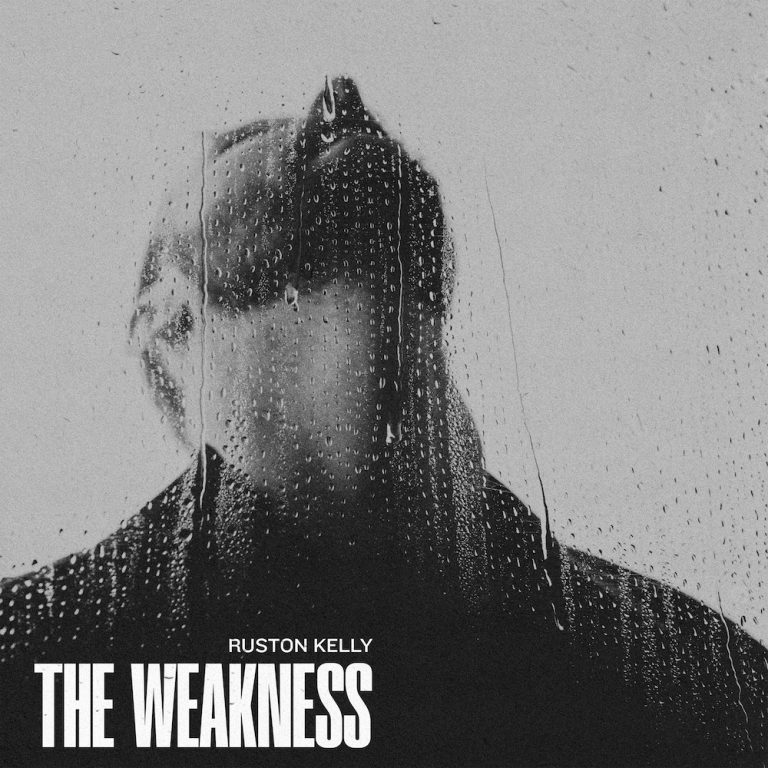Ruston Kelly’s 2018 breakthrough album Dying Star established the South Carolina native as a much-needed antidote to the scores of bro-country stars dominating the genre. LP centrepiece “Mockingbird” is perhaps the 2010s’ best country hit that never was – a timeless tour-de-force that breathed new life into classic country imagery. On Kelly’s newest LP The Weakness, the 34 year old departs from the sounds that defined his debut – mostly notably ditching the pedal steel guitar from his music in its entirety and enlisting Nate Mercereau (Maggie Rogers, Leon Bridges, Sharon Van Etten) on production.
The Weakness presents an earnest and authentic attempt at unpacking and transcending a number of personal crises suffered by the artist since the creation of his last full length Shape & Destroy – a high-profile divorce from Kacey Musgraves, a brief relapse into drug addiction, and the more general realities of COVID living. It’s the sound of an artist questioning everything they once assumed in the face of tragedy and rebuilding from the ground-up – much of the album is just Kelly at his guitar delivering stark confessionals in his characteristically gravelly voice. It’s unfussy, admirably transparent and occasionally underbaked.
“St. Jupiter” is the album’s starkest moment of realisation, filled with instantly relatable commentary on living through the early-2020s; “it’s been a long fucking summer / it’s been a long year / I feel fat and old and dumber / and I’m watching time disappear”). On the quiet “Let Only Love Remain”, he finds grace and a path forward after divorce; “Though you cannot go on with me / I let only love remain”).
Kelly, at his best, is a powerful vocalist and affecting lyricist, both of which are reflected in the above songs. But when his writing falters, the music of The Weakness becomes indistinguishable from the seemingly never-receding tide of nice-guys-with-guitars music. Nowhere is this more apparent than when Kelly trades in the evocative story-telling of his past music for one-line confessionals that are more admirable for their honesty than they are actually compelling (examples include: “Sometimes I wish I was somebody else” on “Hellfire”, or “There’s too much on my mind” on “Breakdown”).
In searching for a way forward, Kelly occasionally departs from the minimalist, acoustic sonic palette that defines the majority of The Weakness. The title track, and opener, is the album’s best departure, a gradually building anthem of recovery that is home to the record’s most cathartic moment – a raspy cry of “Fuck that guy, he’s just a piece of shit.” Elsewhere, Kelly’s switch-ups provide mixed results – the jangly rocker “Michael Keaton” aims for the affecting hyper-specificity of Phoebe Bridgers’ best music, but its musings on CBD and Multiplicity largely fall flat. Behind the LP’s peculiar lyrical conceit lies darker undertones (“It doesn’t matter ‘cause I might / Set this house on fire”) that go frustratingly unexplored. “Breakdown” is a deceptively peppy head scratcher, whose arrangements evoke the mid-2000s pop output of Liz Phair.
If The Weakness reads as inconsistent and occasionally placeless, it’s undoubtedly a reflection of the uncertainty incurred by having the rug pulled out from underneath one’s feet in ways brutal and public. Having an album that’s unmoored and unresolved in the way The Weakness is isn’t always a bad thing and the album’s best moments speak plainly and relatably to the delicate process of recovery. The demo-like “Mending Song” is anchored by little more than Kelly’s finger-picked ukulele, as the singer-songwriter charts a journey through a troubled youth, a short-lived marriage and addiction. It’s filled with love for his blood-family (“I was mended by the love of my mama”) and for Musgraves (“I wish you only happiness and healing”), but most importantly finds Kelly uncovering grace for himself: “I will forgive what I’ve done out of despair”. Sometimes the hardest person to forgive is ourselves.

